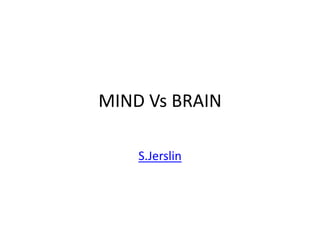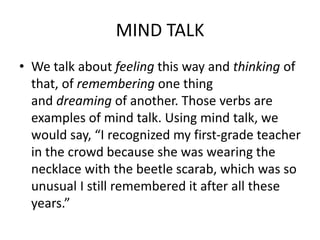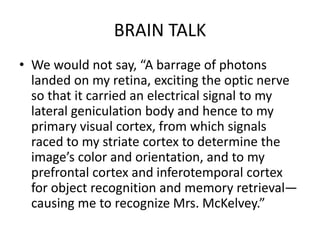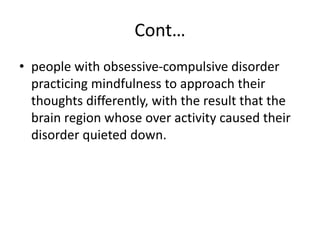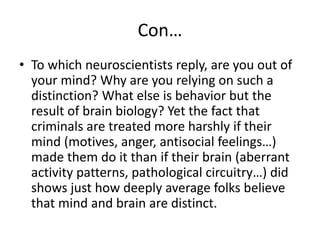1) The document discusses the difference between mind talk and brain talk. Mind talk refers to thinking, feeling, remembering, which people commonly attribute to the mind. Brain talk refers to the specific neurological processes in the brain.
2) While neuroscientists see the mind as a product of the brain, most people believe the mind is distinct from the brain. This is why criminal cases consider motives and intentions versus just biological factors.
3) The document argues that while the mind is physically produced by the brain, the concept of the mind is still useful for understanding human experience in a way that just discussing the brain is not.
